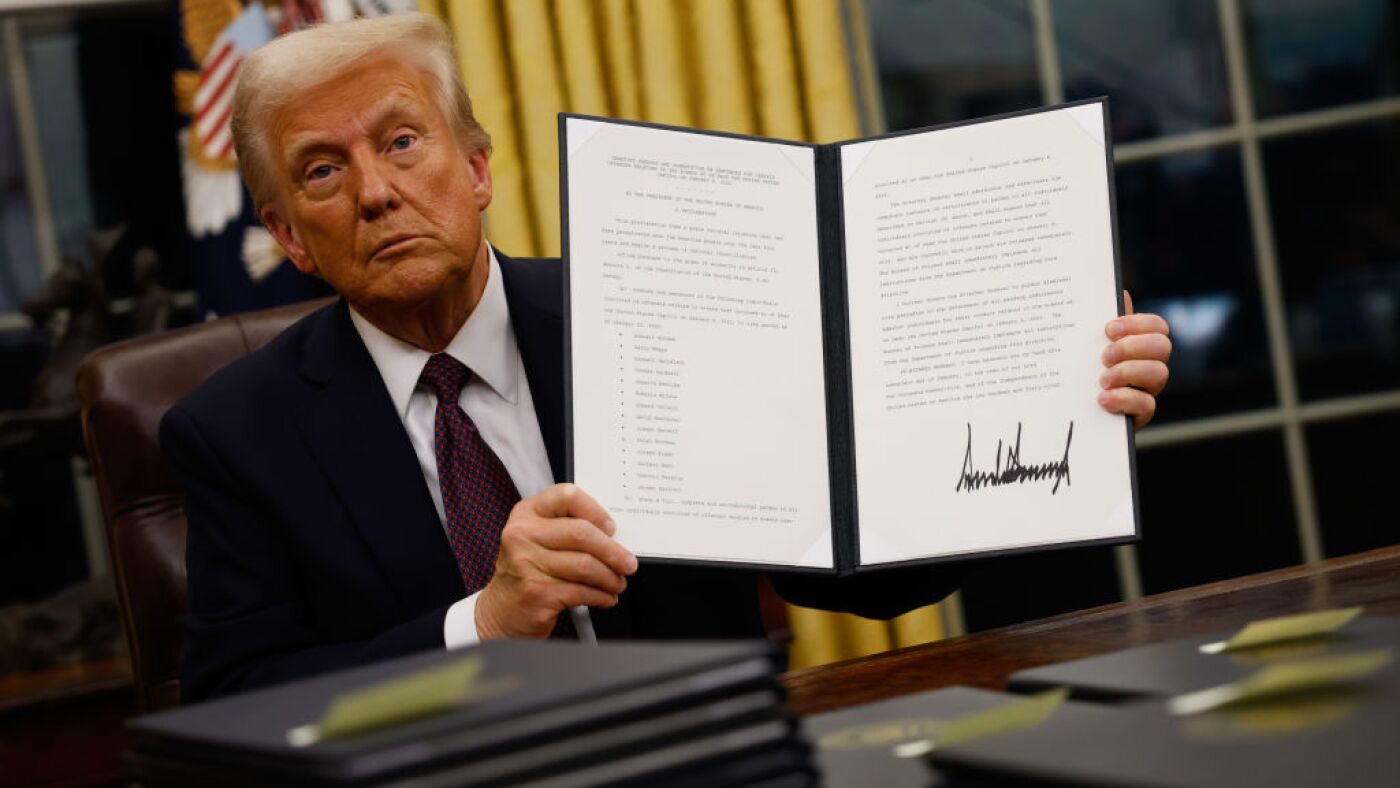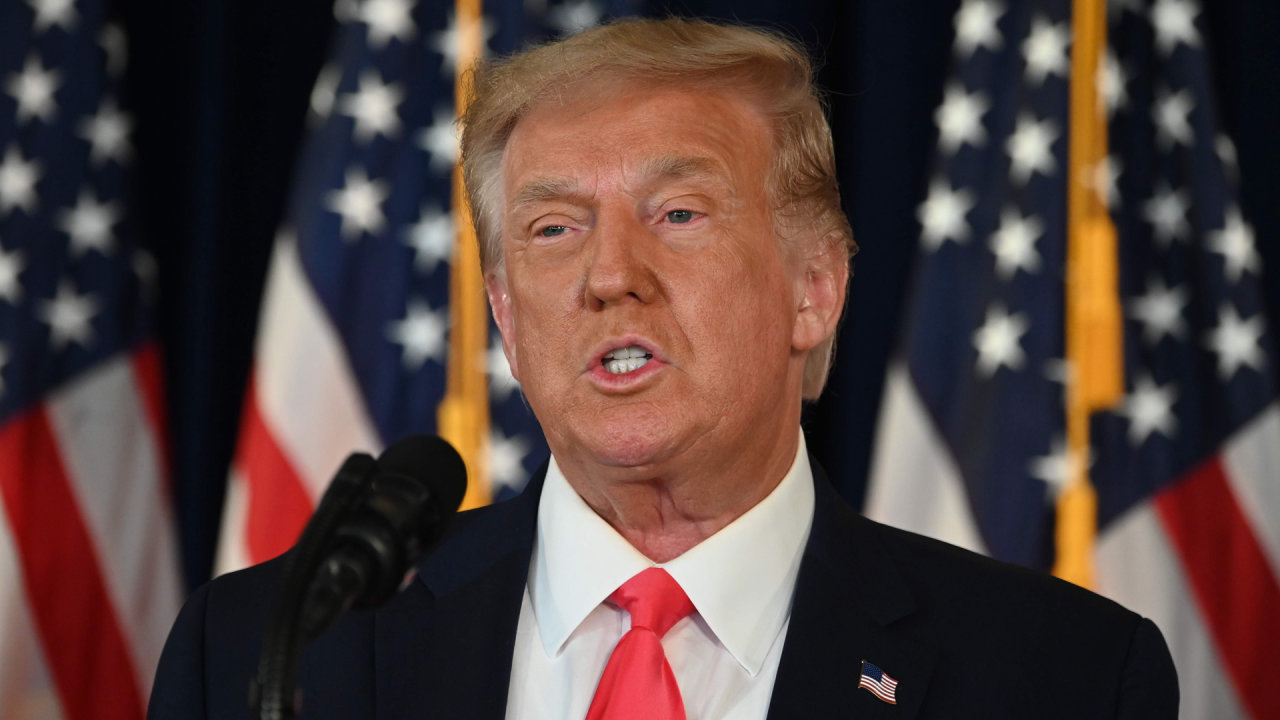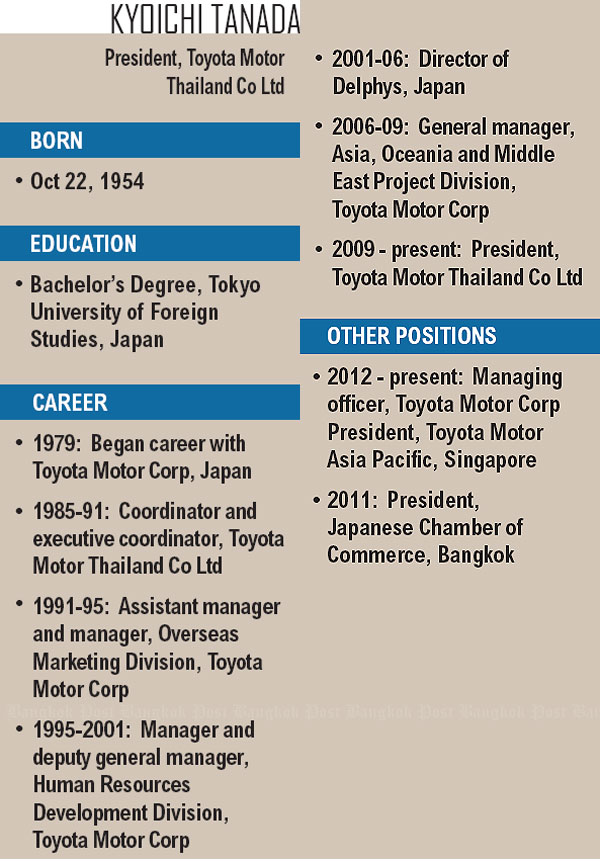President Trump Renews Attack On Federal Reserve Chair Powell

Table of Contents
The Specifics of Trump's Recent Criticism
President Trump's recent criticisms of Jerome Powell represent a continuation of his long-standing dissatisfaction with the Federal Reserve's monetary policy. These criticisms often take the form of public statements, tweets, and interviews.
-
Bullet Point 1: For example, in [insert date and source], President Trump stated [insert direct quote criticizing Powell's policies]. This statement directly criticized [mention specific policy, e.g., interest rate hikes]. Similar sentiments were expressed in [insert another date and source] where he accused Powell of [insert another specific criticism].
-
Bullet Point 2: The timing of these criticisms is often linked to fluctuations in the economy. For example, criticisms often intensify when economic indicators, such as GDP growth or unemployment figures, show signs of slowing down. This suggests that Trump’s discontent is largely driven by his concern about the impact of the Fed's policies on his reelection prospects.
-
Bullet Point 3: Trump's dissatisfaction stems primarily from his belief that the Federal Reserve's interest rate hikes and its overall monetary policy are hindering economic growth. He consistently argues that the Fed is raising interest rates too aggressively, slowing economic expansion and harming his "Make America Great Again" agenda. He often advocates for lower interest rates to stimulate the economy and boost his administration's economic achievements.
The Role of Economic Data:
How do the latest economic figures inform Trump's criticism? Trump's criticism is often closely tied to current economic data. When indicators like inflation or GDP growth fall short of his expectations, he frequently points the finger at Powell and the Federal Reserve, accusing them of mismanagement. Conversely, periods of strong economic growth often result in less frequent and intense criticism. For instance, [cite specific instance where economic data influenced Trump's stance]. This shows a clear correlation between economic performance and the intensity of the President's public attacks on the Fed Chair.
The Implications for Monetary Policy
The ongoing conflict between President Trump and Jerome Powell carries significant implications for monetary policy and the broader economy.
-
Bullet Point 1: President Trump's pressure on the Federal Reserve threatens the central bank's crucial independence. A central bank free from political interference is essential for maintaining confidence in the currency and the financial system. Political interference can lead to decisions based on short-term political gains rather than long-term economic stability.
-
Bullet Point 2: Trump’s pressure could influence interest rate decisions, albeit indirectly. While the Fed is legally independent, the constant barrage of public criticism could create an environment where the Fed feels compelled to make decisions that appease the President, potentially compromising its ability to make purely data-driven choices. This can lead to either artificially low rates fostering inflation or artificially high rates hindering growth.
-
Bullet Point 3: Trump's actions negatively impact investor confidence. Uncertainty about the future direction of monetary policy due to political interference can lead to market volatility and make investors hesitant to invest. This uncertainty can damage the long-term health of the US and global economies.
Global Market Reactions:
The conflict between President Trump and the Federal Reserve Chair is not just a domestic issue. Global markets closely monitor the situation, as the actions of the US central bank have significant global repercussions. Periods of heightened tension often lead to increased volatility in international financial markets as investors react to the uncertainty surrounding US economic policy and the future direction of the dollar. [Insert example of a market reaction to a specific instance of Trump's criticism].
Historical Context: Past Conflicts Between Presidents and the Fed
The current conflict between President Trump and the Federal Reserve Chair is not unprecedented. History shows instances of tension between US presidents and the central bank.
-
Bullet Point 1: During the Great Depression, President Franklin D. Roosevelt clashed with the Federal Reserve over monetary policy. Similarly, [mention other examples of past conflicts between Presidents and the Fed, specifying the President and the issue]. While the specifics of these conflicts differ, they all highlight the inherent tension between the political desire for short-term economic gains and the central bank's focus on long-term economic stability.
-
Bullet Point 2: Maintaining the Federal Reserve's independence has historically been crucial for long-term economic health. Instances where political influence has overridden sound monetary policy have often resulted in economic instability and financial crises. The independence enshrined in the Federal Reserve Act of 1913 is a cornerstone of a stable financial system, and any erosion of this independence threatens this stability.
Conclusion
This article explored President Trump's renewed attacks on Federal Reserve Chair Powell, examining the specific criticisms, their potential implications for monetary policy, and the broader context of the historical relationship between the White House and the central bank. The ongoing conflict highlights the crucial importance of maintaining the Federal Reserve's independence to ensure economic stability and investor confidence. The President's actions, driven by his desire for short-term economic gains, pose a threat to the long-term health of the US and global economies.
Call to Action: Stay informed about the evolving relationship between President Trump and the Federal Reserve. Continue to follow developments in this critical area affecting the US economy by searching for updates on "President Trump's criticism of Jerome Powell," "Federal Reserve independence," and "monetary policy." Understanding this dynamic is crucial for navigating the complexities of the current economic landscape.

Featured Posts
-
 Brewers Defeat Reds Despite Cincinnatis Offensive Breakthrough
Apr 23, 2025
Brewers Defeat Reds Despite Cincinnatis Offensive Breakthrough
Apr 23, 2025 -
 Broadcoms V Mware Acquisition At And T Highlights Extreme Cost Increases
Apr 23, 2025
Broadcoms V Mware Acquisition At And T Highlights Extreme Cost Increases
Apr 23, 2025 -
 Turangs Bunt Delivers Walk Off Win For Brewers Against Royals
Apr 23, 2025
Turangs Bunt Delivers Walk Off Win For Brewers Against Royals
Apr 23, 2025 -
 Experience Pentrich Brewing Factory Tours And Brewery Experiences
Apr 23, 2025
Experience Pentrich Brewing Factory Tours And Brewery Experiences
Apr 23, 2025 -
 Brewers Sweep Tigers In Series 5 1 Milwaukee Victory
Apr 23, 2025
Brewers Sweep Tigers In Series 5 1 Milwaukee Victory
Apr 23, 2025
Latest Posts
-
 Survey Sharing The Impact Of Trumps Executive Orders On Transgender Americans
May 10, 2025
Survey Sharing The Impact Of Trumps Executive Orders On Transgender Americans
May 10, 2025 -
 Increased Advocacy For Transgender Rights Featured In The Bangkok Post
May 10, 2025
Increased Advocacy For Transgender Rights Featured In The Bangkok Post
May 10, 2025 -
 Transgender Individuals And The Impact Of Trumps Executive Orders Your Stories Matter
May 10, 2025
Transgender Individuals And The Impact Of Trumps Executive Orders Your Stories Matter
May 10, 2025 -
 How Trumps Executive Orders Affected Transgender Rights And Well Being A Community Perspective
May 10, 2025
How Trumps Executive Orders Affected Transgender Rights And Well Being A Community Perspective
May 10, 2025 -
 Transgender Equality In Thailand The Bangkok Post Reports Increased Advocacy
May 10, 2025
Transgender Equality In Thailand The Bangkok Post Reports Increased Advocacy
May 10, 2025
